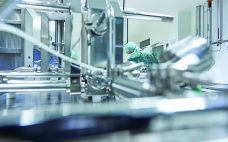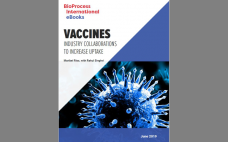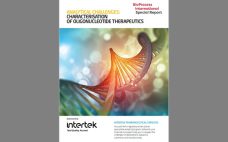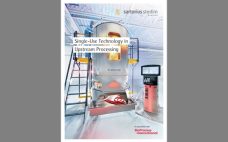Current biomanufacturing is driven to pursue continuous processing for cost reduction and increased productivity, especially for monoclonal antibody (MAb) production and manufacturing. Although many technologies are now available and have been implemented in biodevelopment, implementation for large-scale production is still in its infancy. In a lively roundtable discussion at the BPI West conference in Santa Clara, CA (11 March 2019), participants touched on a number of important issues still to be resolved and technologies that are still in need of…
2019
Going Beyond the Simple Customer–Supplier Relationship: Ensuring a High-Quality Supply Chain Through Transparent Partnerships
Operating a successful global supply chain to deliver single-use systems (SUS) for utilization in the biopharmaceutical industry is complex. In his insightful article, Claudio Catallo, Head of Global Supply Chain Management FMT at Sartorius Stedim Biotech, details the company’s intelligent approach to supply chain management and the models it uses. He also explains how expert teams and integration of digitalization across many sales, manufacturing, and distribution sites maintain the operational excellence required to support supply and demand in an ever-changing…
Critical Considerations for Fill–Finish Manufacturing: Demand to Increase Speed and Flexibility While Maintaining Sterility Spurs Adoption of Novel Technologies
The global market for biopharmaceuticals continues to grow at a rapid pace, with a 9.5% compound annual growth rate (CAGR) predicted over the next eight years. That translates into more than $500 billion in projected growth. So it is no surprise that biopharmaceutical manufacturers are investing heavily in new facilities, technologies, and pipelines for manufacturing drug products. Even so, the need to prevent contamination places stringent handling and packaging requirements on biomanufacturers. Sterilizing equipment often requires steam autoclaves and dry…
On Continuous Chromatography: A Conversation with Sanofi’s George Weeden
George S. Weeden, Jr., is a scientist in global manufacturing science and technology (MSAT) process science at Sanofi. We recently chatted about the topic of continuous chromatography. What are the general reasons for companies to consider continuous chromatography? And what are the caveats? The main driver for considering continuous chromatography is reducing the cost of goods (CoG). Continuous chromatography improves productivity (mass of product per volume of stationary phase over time) and thus increases throughput or decreases volumes of stationary…
eBook: Vaccines – Industry Collaborations to Increase Uptake
Vaccines save millions of lives every year, and the continuing increases in the number of administered doses and worldwide distribution of vaccines for long-standing diseases such as polio and malaria have contributed to the improvement in public health. Vaccine developers and manufacturers are partnering with private and government agencies to raise global vaccine uptake by addressing remaining challenges with production capacity, distribution, safety, and accessibility. And the implementation of new technologies such as virus-like particles and cell/DNA-based vaccines are helping…
Analytical Challenges: Characterization of Oligonucleotide Therapeutics
Recent approvals of oligonucleotide therapeutics are a clear signal for optimism for this product class. This is supported by the strength of the current pipeline which has over 180 active oligonucleotide clinical programs in various phases of development. Improvements in analytical technology and know-how have played a key role in enabling suitable characterization and quality control strategies to overcome the difficulties associated with testing these complex molecules. Despite the lack of dedicated regulatory guidelines related to characterization or quality control,…
Single-Use Technology in Upstream Processing: A Roundtable Discussion
The Sartorius upstream portfolio addresses key strategic challenges facing the biopharmaceutical industry: Increased speed to clinic/market and lowered capital costs, with improved process control. Fully scalable, proven process solutions for cell line, media, and process development through commercial manufacturing accelerate upstream development and simplify manufacturing. Novel high-throughput development tools for intensified processes incorporate the latest in process analytics, multivariate data analysis (MVDA), and design of experiments (DoE) software tools. These tools are designed to compress development timelines and to scale…
BioProcess International Europe 2019 Event Report
BioProcess International Europe has distinguished itself as a must-attend event for industry decision makers around the world. While complementing and connecting to content delivered at all BPI events, this conference delivers unique and applicable information not presented anywhere else. Here, BioProcess International’s publisher and senior technical editor offer their perspectives on this year’s meeting in Vienna, Austria, with a program overview and exploration of themes that arose from the sessions and talks: from accelerated cell-line engineering to continuous bioprocessing, new…
Building Toward Antibody–Drug Conjugate Success
“We are witnessing one of the most significant paradigm changes in oncology drug development, with some new types of immunooncology compounds inducing unprecedented increases in survival in certain solid and liquid tumor indications.” —Jagath Reddy Junutula (Cellerant Therapeutics) and Hans-Peter Gerber (Pfizer) (1) An antibody–drug conjugate (ADC) for cancer treatment needs four things to succeed clinically: It needs to target the right antigen using the right antibody, with the most powerful cytotoxin attached by best linker option. These features combine…
Antibody–Drug Conjugate News: From BioProcess Insider
The following news items have appeared on the BioProcess Insider site over the past year. Together they indicate the direction in which the ADC sector is moving. BEYOND ADCETRIS — SEATTLE GENETICS AIMS FOR BIG BIOPHARMA STATUS 30 April 2018: Seattle Genetics is building toward a bigger future. For the first quarter 2018, the company’s total revenues grew to US$141 million (€116 million) compared with $109 million in the same period last year. This was attributed to a 36% increase…









